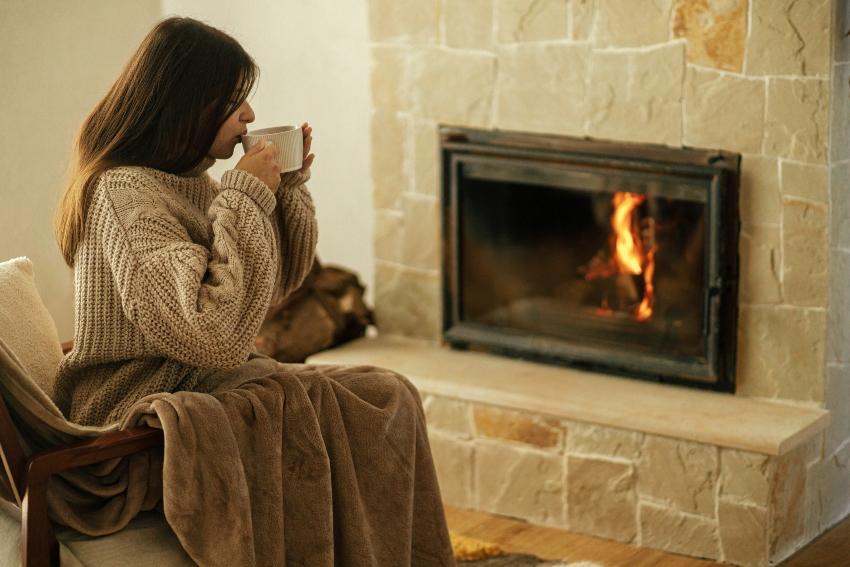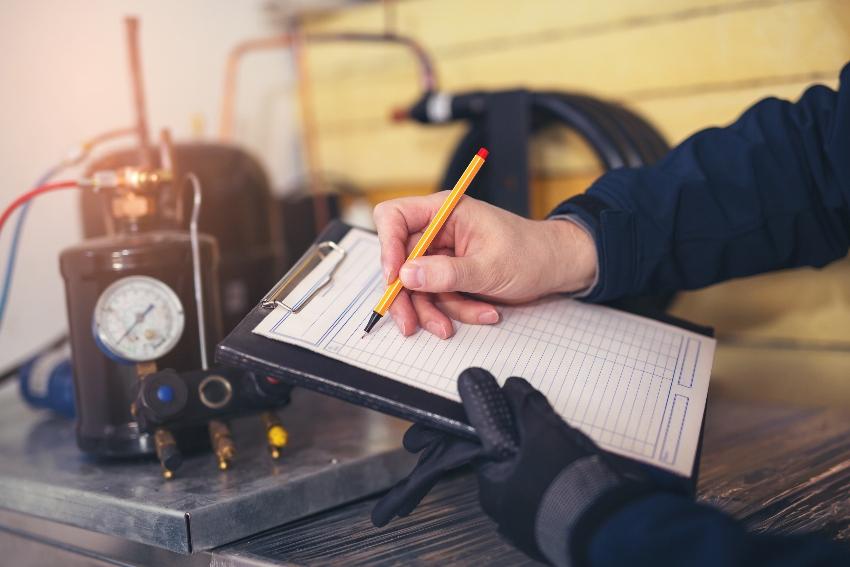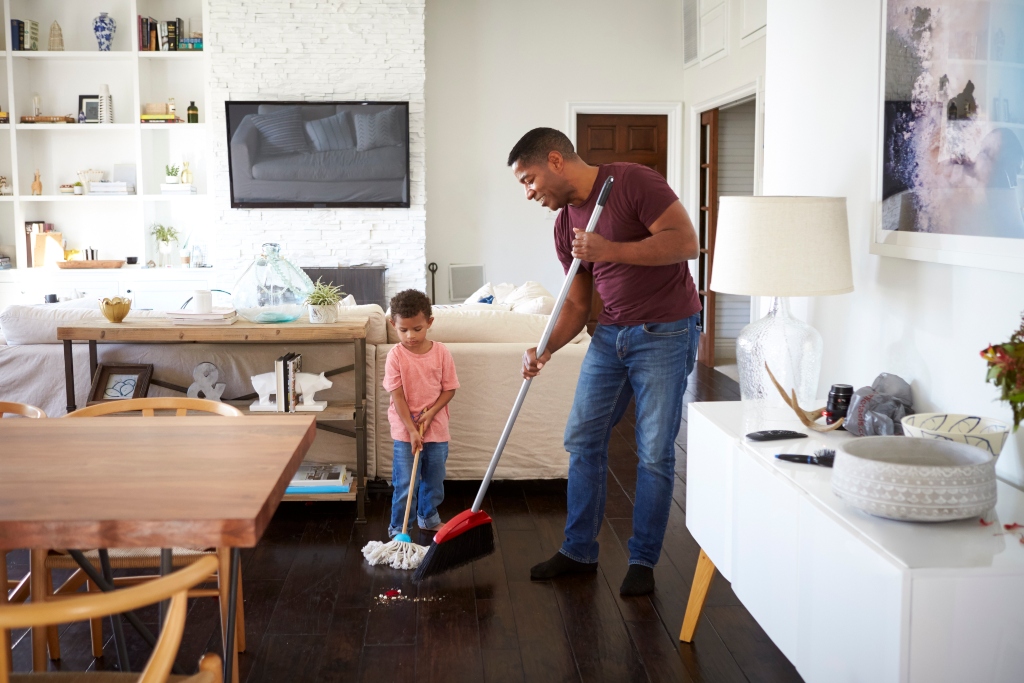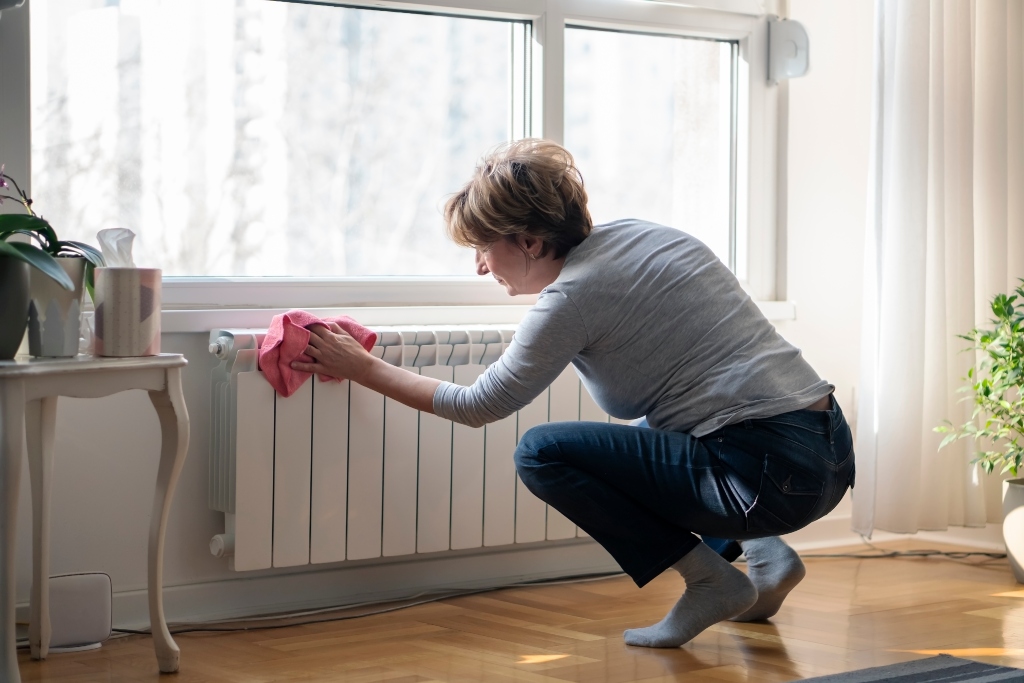Local HVAC Services and Solutions for Total Indoor Air Comfort
Posted on by WestAIR Heating & Cooling

When it comes to weather, in Minnesota, we live in a state of extremes. That’s why we rely on our homes to provide an oasis of clean air and cozy temperatures all year long. And WestAIR Heating & Cooling has you covered. Read on to learn more about the HVAC services and solutions we offer as your local source for total indoor air comfort.
Home Heating Solutions
The snowy and bitterly cold winters make reliable, efficient heating systems vital to our comfort, health, and safety. WestAIR offers a full range of solutions, and our expert technicians will help you find the perfect fit for your home and provide professional installation.
- High-efficiency furnaces warm your entire home in the most cost-effective way, leading to lower energy bills. Additionally, qualifying systems allow you to claim a federal tax credit.
- Radiant floor heating provide heat from the ground up instead of via forced air through vents, which eliminates air loss in ductwork. This also means dust and allergens aren’t being blown into the home and decreasing air quality.
- Gas fireplaces allow you to add beauty as well as comfort. Our experienced technicians will help you choose the right model, style, and finishing touches to optimize performance and ultimately boost your home’s value.
- Unit/garage heaters let you use your garage for more than parking. By keeping the space warm, it can be used for year-round storage, social and recreational activities, hobbies, and more.
Home Cooling Solutions
While our air is extremely cold and dry, the summers are full of heat and humidity. But don’t worry—we provide the same level of experience and expertise when it comes to home cooling solutions.
- High-efficiency air conditioning (A/C) systems deliver cost-effective cooling while also helping maintain proper humidity levels. And just like the furnaces mentioned above, many will qualify you for a federal tax credit.
- Ductless mini-split A/C systems require no ductwork, making them ideal for homes/spaces where adding ducts is impractical or too expensive. They can also provide heating as well as cooling.
HVAC Efficiency and Indoor Air Quality Solutions
Indoor air quality (IAQ) affects comfort as well as overall health. Rely on WestAIR to help ensure the air inside your home is both clean and cozy.
- Air exchangers help remove stale, unhealthy indoor air while simultaneously providing fresh, pre-filtered outdoor air.
- Air cleaners do just what the name implies: They clean the air by trapping harmful airborne particles before they can pollute the home and be breathed in by you and your loved ones.
- Whole house humidifiers maintain relative humidity levels, helping avoid dry-air issues such as dry skin, cracking/warping of furniture and wood, and inefficient heating.
- Programmable/setback thermostats allow you to pre-set temperature and humidity settings for multiple days. This allows you to maintain cost-effective comfort without constantly having to adjust the thermostat.
- Automatic zoning systems separate your home into zones that can be individually controlled. That way, you don’t have to waste energy and money heating/cooling areas that are rarely used.
- Ultraviolet (UV) light air purification systems work in conjunction with your current HVAC to eliminate viruses, bacteria, mold, and other harmful airborne pathogens for improved IAQ.
HVAC Maintenance Services
As your local source for all things HVAC, WestAIR also provides a full range of professional maintenance services:
Your home should be a private escape from the extremes of Minnesota weather. We’re here to help make the best decision for you and your home, as well as ensure your systems run at peak performance and efficiency.
Contact WestAIR today to learn more about our HVAC services and solutions for total indoor air comfort.
This entry was posted in AC,Air Cleaners and Purifiers,Air Conditioning,Cooling,Duct Cleaning,Energy Savings,Furnace,Health Tips,Heating,Humidifier,Humidity,HVAC Maintenance,Indoor Air Quality,Repairs,Tips,Winter and tagged Furnace, Heating, Home Cooling Solutions, Home Heating Solutions, HVAC Services, HVAC Solutions, Indoor air quality, Service, Thermostat, Tips & advice, Total Indoor Air Comfort, WestAIR, WestAIR Heating & Cooling, WestAIR Services
Snowbird Checklist for 2023
Posted on by WestAIR Heating & Cooling

Heading south for the winter isn’t just for the birds anymore. During the winter season, the Florida population increases by more than 5 percent due to snowbirds. When it is time to pack up and head south, you should think about the ways you can keep your house, yard, and belongings safe. Let WestAIR Heating & Cooling walk you through our 2023 snowbird checklist.
Winterize Your Home
It is safe to say that heading south for the winter is a dream, but you shouldn’t have nightmares about things that could go wrong with your Midwestern home. You should bask in the sun, enjoy the weather, and love life. If you plan to leave your house vacant for a few months, we want to give you a few tips on how to winterize your home.
- Turn off your water supply.
- Remove all food from your pantry so you won’t find new critters roaming around.
- Make sure to keep your house temperature at 55°F or warmer. You can install a smart thermostat to control the temperature of your house from your phone.
- Unplug all electronics and appliances.
- Have your heating system serviced by WestAIR Heating & Cooling.
Indoor Cleaning
Your house contains a lot of prized valuables and treasures. Tidying up indoors and performing routine maintenance will help deter criminals and keep your house safe. To prevent fires, make sure all fire alarms are working and have new batteries. Check to make sure all your windows and outside doors are locked and draw the shades. Arrange for someone to regularly come over and check on the house. We also recommend fully cleaning your house, removing all food, and emptying all garbage cans. You don’t need indoor trespassers, either (rats, spiders, etc.).
Outdoor Maintenance
Outdoor maintenance matters just as much as indoor maintenance. To keep your house safe, we suggest installing Wi-Fi-enabled smart cameras. These cameras will catch any suspicious activity and send an alert straight to your smartphone. You can also install a motion sensing floodlight to discourage potential criminals. Some other outdoor maintenance we suggest is to have a snow removal company plow and shovel for you. You should also clean and bring in any outdoor furniture. Make sure to drain all pipes, faucets, and outdoor hoses to prevent the water in them from freezing and expanding.
Tell the Neighbors
Communicating with family, neighbors, and friends is important when snowbirding. In order for your home to stay safe and intact, you should have a few people watching over it. Smart cameras work wonders, but not when you are thousands of miles away. Neighbors can watch for suspicious activity and pick up any mail or packages delivered while you are away. Family or friends can perform weekly checks to make sure the inside of your house is secure and tidy.
There are many positives to being a snowbird. For example, sunlight and warm weather can help improve your lung and heart health. There is no need to worry about straining your body while shoveling or snowplowing during a snowstorm. The warm weather helps to get you outside and spend time doing activities you love, such as walking, biking, and running. You also get the chance to explore a new town, try new things, and immerse yourself in a different culture.
If you follow our 2023 snowbird checklist, you won’t need to worry when you’re away because your house, yard, and belongings will be safe and sound. We can also help keep your home safe — by making sure your heating system is in great working condition. If you are looking to have your heating system serviced or for more snowbird tips, feel free to contact WestAIR Heating & Cooling.
This entry was posted in Holidays,HVAC Maintenance,Safety Tips,Tips and tagged checklist, indoor cleaning, outdoor maintenance, smart camera, Smart thermostat, Snowbird, Snowbirdchecklist, Thermostat, Tips, Winterize
Repair or Replace: 6 Signs You Need a New Air Conditioner
Posted on by WestAIR Heating & Cooling

The weather is heating up here in Minnesota. Have you given your cooling system a test run yet? Doing so allows you to address any issues before the hot and humid summer days arrive. But how will you know if you need a repair or a replacement? Read on to learn about six signs you need a new air conditioner.
Frequent Repairs and Old Age
According to the U.S. Department of Energy (DOE), central air conditioners typically last about 15-20 years. And while occasional repairs are to be expected, having to do so frequently means you likely need a replacement. If your AC is around 15 years old and/or needs multiple service calls during the cooling season, it may be time to forget the repair bills and invest in a new cooling system.
Strange Odors and/or Sounds
Your AC shouldn’t be silent, but be on alert for certain noises that point to a problem:
- Loud grinding, squealing, or scraping noises could indicate a faulty belt, which can damage other parts if unaddressed.
- Frequent cycling (system turning on/off) could be caused by an improperly sized unit, a leaky ventilation system, or issues with the evaporator coils.
Additionally, the air pushed out by the system should not offend your nostrils. Don’t ignore strange odors when your AC is on:
- Burning smells may be due to burned-out wiring or other issues with the unit’s internal pieces, which could lead to an electrical fire.
- Foul, rotten egg smells could indicate a gas leak that poses a serious health and safety hazard for you and your family.
- Musty smells could mean moisture is escaping into your ductwork and creating health risks.
If you notice any of these issues, contact WestAIR ASAP to investigate and resolve the issue to keep your household safe.
Moisture Buildup On/Around Condenser Unit
Your AC will naturally produce some condensation, but liquids should never leak from the unit. Pooling water may be caused by a blocked or busted condensation tube and is a less serious issue. However, the refrigerant the system uses to cool the air is poisonous. Contact our expert HVAC technicians immediately if you notice any liquids on or around the condenser unit.
Excess Indoor Humidity
Speaking of moisture, a properly functioning cooling system should help maintain proper indoor humidity levels. If your home feels excessively humid, that’s a sign that your AC is failing and may need to be replaced.
Weak, Warm, and/or Uneven Air Distribution
Air conditioners should supply your entire home with cool, evenly distributed air. Warm air could be caused by a problem with the compressor or restricted airflow. If you notice uneven or weak air distribution from your vents, you may need to change/clean your filter or clean your ductwork to clear a blockage. You should schedule a professional inspection from an HVAC specialist to diagnose the exact cause and discuss the ideal solution to these problems.
Higher Energy Bills
Higher energy bills are to be expected as we increase the demand on our HVAC system during the cooling months. But if your bills seem to spike unreasonably, it’s likely that your AC isn’t operating efficiently and needs to be repaired or replaced.
Rely on WestAIR Heating & Cooling for AC Repair and Replacement
As we prepare for the hot and humid summer days ahead, now’s the time to ensure your AC is ready. Keep an eye out for these signs you need a new air conditioner when testing your system before the cooling season is in full swing. If you notice any issues, the local HVAC experts at WestAIR are here to help.
Contact us to learn more and schedule service.
This entry was posted in AC,Air Conditioning,Cooling,Health Tips,HVAC Maintenance,Indoor Air Quality,Repairs,Tips and tagged AC Repair, AC Replacement, AC Warning Signs, Air conditioner maintenance, Air Conditioner Repair, Air Conditioner Replacement, Air Conditioner Warning Signs, air conditioning, Heating and Cooling Services, Homeowner Education, Homeowner Tips, HVAC Safety, HVAC Warning Signs, Residential HVAC, Signs You Need a New AC, Signs You Need a New Air Conditioner, WestAIR Heating & Cooling
4 Spring HVAC Reminders to Prepare for Cooling Season
Posted on by WestAIR Heating & Cooling

Spring officially began on March 20 and despite some chilly days and “surprise” snowfall, cooling season is on its way. You may be ready for the shift, but is your air conditioner? Use these spring HVAC reminders and tips to help prepare your system for the hot summer days ahead.
Cleaning Tips Around the Home
Whether you’ve already finished your spring cleaning or have yet to bust out the rubber gloves, don’t forget to incorporate your HVAC system into your routine:
- Dust and disinfect floors and hard surfaces around the home. Keeping them clean helps prevent dirt, allergens, and other airborne particles from getting inside your ductwork.
- Clear debris buildup from exhaust fans. After making sure the power is off, wash with soapy water and use a toothbrush to clean dirt and debris off the fan blades.
- Clean windows, blinds, and curtains. That way you can let in fresh air and sunlight without a producing a cloud of built-up dust whenever you open them.
- Dust the blades of your ceiling fans. Similarly, you don’t want dust to fly all over whenever you turn the fan on. And remember to run fans counterclockwise in the summer to blow air straight down and create a windchill effect.
- Clean the grills of floor registers and air vents. Use a vacuum to remove collected dust and debris. For a deeper clean, remove the vent, scrub the individual grill spaces with a rag and butter knife, and then rinse with warm soapy water.
Have your Ductwork Professionally Cleaned
While regular dusting, mopping, vacuuming, and cleaning of the vents and registers helps minimize the amount of debris that gets into your ductwork, there’s no way to prevent it entirely. Duct cleaning helps prevent dust, pollen, and other harmful particles from accumulating and impacting the health of your HVAC system and indoor air quality.
Seal the Home
Don’t let the cool air your HVAC system produces go to waste. Check windows, doors, and exterior walls for cracks and seams that could let indoor air escape and hot, humid outdoor air sneak in. Seal them with caulk to help maintain efficient cooling.
…but Provide Proper Ventilation
Providing fresh air and adequate ventilation are vital to maintaining indoor air quality. Open windows on nice days for natural ventilation and air flow. Consider installing an air exchanger that simultaneously removes stale, recycled indoor air while supplying fresh, filtered air from outside.
Test the System & Schedule Preventative Maintenance
Don’t wait for the first hot, humid day of the year to test your air conditioner. Turn the system on now to check for any issues, and schedule annual preventative maintenance with the local HVAC experts at WestAIR to ensure optimal performance, efficiency, and safety.
With Minnesota’s unpredictable weather, spring can feel like little more than a brief break between the last snowfall and the first hot, humid day of summer. Don’t let the window sneak by without giving your home’s air conditioner some much needed TLC! Use these spring HVAC reminders to help ensure your system is ready to keep your home cool and cozy all season long.
For all your heating and cooling needs, trust the knowledgeable, experienced HVAC professionals at WestAIR. Contact us to learn more about our services.
This entry was posted in AC,Air Conditioning,Cooling,Duct Cleaning,Energy Savings,Health Tips,HVAC Maintenance,Indoor Air Quality,Spring,Tips and tagged Air conditioner, Air conditioner maintenance, Air conditioner tune-up, air conditioning, Annual check-up, Annual service maintenance check, Cooling Season, Cooling Season Prep, Cooling system, Cooling Tips, Duct cleaning, Duct cleaning service, Professional duct cleaning, Spring, Spring Cleaning, Spring Heating and Cooling, Spring HVAC, Spring HVAC Reminders, WestAIR Heating & Cooling
Keeping Air Ducts Clean
Posted on by WestAIR Heating & Cooling

In a previous blog, we discussed air duct cleaning and maintenance. Because these duties help provide better indoor air quality, we wanted to mention them again and reiterate their importance to your home and health. Learn more about some reasons for keeping air ducts clean and ways to do so.
Indoor Air
Wherever you go, it only makes sense that you want to breathe the cleanest, healthiest air possible.
The Environmental Protection Agency estimates that the average American spends 90 percent of their life indoors. As such, it’s important for your home’s air to be free of as many contaminants as possible. This is especially important since the accumulation of indoor air pollutants is exponentially higher than regular outdoor concentrations.
Some effects of poor indoor air include respiratory issues and disease, headaches, dizziness, and fatigue. Oftentimes indoor air pollutants can increase the intensity of issues like asthma and even cause eye, nose, or throat dryness and irritation. Protect yourself and your family by keeping air ducts and your home’s air clean.
Duct, Duct, Dirty Duct?
Your HVAC system often pulls in outside air to condition and distribute through the home, so dirt, dust, and other allergens find their way in. Since the ductwork throughout your home is hidden, you probably don’t give it much thought. And because it’s hidden, it’s more difficult to access and clean.
So how do you know if your ductwork is hiding something unhealthy? Look for telltale signs, such as:
- Dust. If you continually notice dust even after you’ve cleaned, check your vents. Remove the register cover to see if the ductwork is lined with dirt or dust, too.
- Cost increase. Are your utility bills noticeably higher compared to the same time last year? Your HVAC system may be working harder (and less efficiently) because of restricted airflow. This could be from dirty ducts or dirty air filters. A trusted technician can perform an inspection and determine the cause.
Keeping Air Ducts Cleaner
Routine home maintenance can help keep your air ducts cleaner and your indoor air fresher.
Check and change HVAC filters. This could be every 30 days or every few months, depending on how often your system runs, if you have pets, or if you have younger children or allergy sufferers in the home. Check the filter on a regular basis and change it as needed.
Have your HVAC system inspected at least once a year to ensure it is operating at peak performance. This will also allow you to catch and fix any smaller issues before they become potentially bigger problems. Routine maintenance can extend the life of your heating and cooling systems, saving you money in the long run.
Complete household chores each week. This includes dusting hard surfaces and flooring, vacuuming carpeted areas (and vent covers), and running bedding through the wash. Also, vacuum and wash pet bedding as needed, and consider a high-quality HEPA filter vacuum to further reduce indoor air contaminants.
A few upgrades will also go a long way toward improving air quality at home.
- Rid your home of dry air with a whole house humidifier. Dry air can make skin to feel tight and itchy or cause nose or throat discomfort. The wood inside your home can also be negatively affected by dryness. Adding moisture to the air can increase your overall home comfort.
- Remove odors and pollutants with a UV light air purification system. A BreatheCLEAN UV air purifier works with your current HVAC system and removes contaminants to provide continuous protection.
Small changes to daily, weekly, and yearly routines can help with keeping air ducts clean while increasing overall indoor air quality. If you think your ductwork should be checked, rely on the experienced professionals at WestAIR Heating & Cooling.
Contact us today to learn more about our duct cleaning or other services.
This entry was posted in Duct Cleaning,Health Tips,Humidifier,Humidity,HVAC Maintenance,Indoor Air Quality,Spring,Tips and tagged Air ducts, Clean Air Ducts, Duct cleaning, Duct Cleaning and Indoor Air Quality, Duct cleaning service, HVAC Maintenance, HVAC System Efficiency, Keeping Air Ducts Clean, Professional duct cleaning, Residential HVAC, Signs of Dirty Ductwork, westair heating and cooling
7 Tips for Extending the Lifespan of HVAC Equipment
Posted on by WestAIR Heating & Cooling

When it comes to weather, Minnesota is a place of extremes. Our harsh, bitterly cold winters and hot, humid summer days make a functioning furnace and air conditioner crucial to a comfy home. Follow these tips for extending the lifespan of HVAC equipment to get the most out of your system.
Schedule Preventative Maintenance Twice Annually
Have your system professionally serviced before each heating and cooling season for a thorough tune-up, cleaning, and maintenance service to ensure peak performance and efficiency. Your technician will also catch minor issues to prevent costly repairs later on, as well as help you decide if it’s better to repair or replace.
But don’t wait for maintenance service or a total breakdown to have your system inspected. If you notice strange sounds or smells, decreased efficiency or performance, or any other warning signs, call your local HVAC professionals to diagnose and repair the issue before it gets worse.
Have Ductwork Professionally Cleaned Every Other Year
Dirt, dust, pollen, and other debris naturally settle inside your ductwork over time. This buildup not only impacts airflow and efficiency, but it also becomes a breeding ground for bacteria. As your HVAC unit pumps air to the home, these contaminants get blown out with it and decrease your indoor air quality.
Schedule professional duct cleaning service once every two years to help maintain air quality and reduce stress placed on the system.
Maintain a Clean Air Filter
Clogged filters decrease airflow, forcing the system to work harder and experience a higher level of wear and tear. They’re also the number one cause of breakdowns. Remember to clean or change your HVAC system’s air filter every month.
Take Care of the Condenser Unit
While A/C condenser units are designed to withstand the elements, they’re not invincible. Inspect your condenser for any damage or debris buildup on occasion, especially after severe storms and instances of hail. Additionally, give the unit two to three feet of space to easily and efficiently draw in air. Keep the unit and surrounding space clean and clear of obstructions as well as grass clippings, leaves, branches, dirt, and other debris.
Check the Drainage Pipe Regularly
HVAC systems feature a PVC pipe on the indoor unit that leads outside to drain excess condensation. Serious damage to this outlet line can result in expensive repairs, so inspect yours regularly for blockages, debris, and any other issues. Be sure to do so more frequently in winter due to the potential of ice or snow deposits.
Invest in a Programmable Thermostat
Being strategic with your thermostat can help lower utility bills and stress on your system. However, constantly adjusting the temperature can have the opposite effect. With a programmable thermostat, you can preset temperature and humidity levels over multiple days without worrying about manual adjustments.
Ease Stress on the System in Other Ways
Give your HVAC system a break whenever possible to maximize its performance and useful life. For more information, check out our helpful guides to optimizing HVAC efficiency in the winter and summer.
Heating and cooling systems contribute up to half of a home’s energy consumption, and we rely on them throughout the year in our state. Use this guide to extending the lifespan of HVAC equipment to keep the air in your home clean and comfy for years to come.
Backed by over 30 years of industry experience, locally owned and operated WestAIR has the knowledge and expertise for all your heating, cooling, and indoor air quality needs. Contact us to learn more about our services.
This entry was posted in AC,Air Conditioning,Cooling,Duct Cleaning,Energy Savings,Fall,Furnace,Health Tips,Heating,Humidity,HVAC Maintenance,Indoor Air Quality,Tips,Winter and tagged A/C, A/C maintenance, A/C Tips, Air conditioner maintenance, Air filters, Condenser Unit Maintenance, Duct cleaning, Energy savings, Energy-Saving HVAC Tips, Extending the Lifespan of HVAC Equipment, Furnace Maintenance, Furnace Tips, Homeowner Education, HVAC Education, HVAC Maintenance, HVAC Maintenance Tips, HVAC tips, Preventative Maintenance, Programmable thermostat
7 Winter Furnace Maintenance Tips
Posted on by WestAIR Heating & Cooling

We rely on our heating systems a lot during Minnesota’s long, brutal winters. As we continue through the coldest months of the year, homeowners should take steps to minimize stress on their HVAC system to help prevent inconvenient breakdowns and costly repairs. Use these winter furnace maintenance tips to enjoy optimal performance, efficiency, and comfort all season long.
- Keep the air filter clean. A clogged filter forces the HVAC system to work harder, decreases efficiency, and is also the most common cause of breakdowns. Be sure to change or clean your air filter every month.
- Maintain a clear, clean area around the unit. Giving your furnace room to breathe promotes safe, efficient operation, as well as easy access to the unit for you or your HVAC specialist if necessary. As a general rule, give your furnace or indoor air handling unit three feet of clearance and clean the space regularly.
- Inspect flue pipes for damage. Your furnace naturally produces gases during the combustion process, and flue pipes carry these gases to your home’s ventilation system to be safely exhausted. Check the pipes for any damage that could be leaking CO into the home, as well as signs of soot and/or rusting. Have an experienced HVAC technician inspect any issues immediately.
- Clean supply and return vents. Supply vents feed warm air produced by your furnace to your home; return vents pull old indoor air and deliver it to the HVAC system to maintain indoor air quality and comfort. Cleaning them helps prevent dust and other airborne irritants from getting into the air you breathe or sucked back into the system.
- Check for signs of dirty ductwork. Air ducts carry air between your HVAC system and home and naturally collect dirt, dust, and other debris over time. Issues to look for include mold around your vents or furnace, excessive dust accumulation (especially around vents), inconsistent heating throughout the home, unexplained increases in allergy symptoms and/or respiratory problems, and signs of a rodent or pest infestation. Schedule professional duct cleaning service if you see any of these, and plan to do so annually.
- Turn the temperature down but keep the system on. Turning the thermostat down at night or when the house is empty can help cut utility costs, but don’t turn the system completely off. Having to fire the furnace back up whenever you wake up or return home requires more energy and adds unnecessary stress. Just remember to go no lower than 55 degrees (or closer to 60 during extreme cold) to help prevent frozen pipes. For ultimate ease and efficiency, consider installing a programmable thermostat that lets you pre-set temperature settings for multiple days ahead of time.
- Don’t ignore the warning signs. Don’t wait for a complete breakdown to give your furnace the attention it needs. If you notice uneven or inefficient heating, unexplained spikes in energy bills, or any other furnace issue warning signs, call WestAIR for professional diagnosis and repair before the issue gets worse.
It may be the beginning of a new year, but we have a lot of cold days and harsh weather ahead of us yet. Follow these winter furnace maintenance tips to help your heating system run safely, efficiently, and uninterrupted for the rest of the season.
Trust the highly knowledgeable and experienced HVAC professionals at WestAIR for all your heating and cooling needs. Contact us to learn more.
This entry was posted in Duct Cleaning,Energy Savings,Furnace,Health Tips,Heating,HVAC Maintenance,Indoor Air Quality,Tips,Winter and tagged Duct cleaning, Duct cleaning service, Ductwork, Energy efficiency, Furnace Education, Furnace Maintenance, Furnace Maintenance Tips, Furnace Tips, Heating, Heating System, Heating System Education, Homeowner Education, Homeowner Tips, HVAC Maintenance, HVAC Maintenance Tips, WestAIR Heating & Cooling, Winter Furnace Maintenance Tips, Winter Heating Tips, Winter HVAC, Winter HVAC Safety, Winter HVAC Tips
7 Tips for Winter Indoor Air Quality Maintenance
Posted on by WestAIR Heating & Cooling

With the recent snowfall and chilly temps, there’s no denying that winter is almost here. Time to prepare! As heating season makes its way to Minnesota, we must remember to keep the air in our home clean as well as warm. Use this guide to winter indoor air quality maintenance to keep your family cozy, healthy, and happy throughout the season.
Poor Winter Indoor Air Quality: Causes and Effects
When cold weather hits, we seal our homes to prevent the warm air produced by our furnaces from escaping. While this helps increase comfort and energy efficiency, it also traps dust, pollen, and other airborne contaminants inside the home that then decrease indoor air quality. Common signs of poor winter indoor air quality include:
- Dry, itchy, or watery eyes
- Cold or flu symptoms: coughing, sneezing, nausea
- Heightened symptoms of asthma and other respiratory illness
- Fatigue and trouble concentrating
- Irritation of the nose and throat, particularly dryness
- Headaches
Tips for Winter Indoor Air Quality Maintenance
Escaping the bitter cold of Minnesota winters means spending more time inside our home, making clean indoor air crucial to our comfort and health. Thankfully, homeowners can improve and maintain air quality with these helpful tips.
- Clean regularly – Don’t let dust, mold spores, and other pollutants build up around the home. Dust hard surfaces and vacuum (using a vacuum with a HEPA filter if possible) at least weekly. Use non-toxic cleaners free of volatile organic compounds (VOCs), which are a major contributor to unhealthy air.
- Maintain a clean filter – Air filters keep dust and other debris from entering and harming your HVAC system, but must be maintained in order to prevent these irritants from making their way back into the air. Remember to change air filters monthly or clean if resuable.
- Schedule annual service maintenance – Ensure your heating system runs at peak performance and provides clean, warm air with professional maintenance service from a WestAIR HVAC expert.
- Have your ductwork cleaned – Dirt, dust, pet hair and dander, and other irritants settle inside your air ducts over time. Schedule duct cleaning service before winter is in full swing, and plan to do so annually.
- Enhance ventilation with an air exchanger – Sealing the home in winter leads to recycled, stale air inside. To resolve this, air exchangers deliver a continuous flow of fresh, filtered outdoor air while simultaneously exhausting unhealthy indoor air.
- Control humidity with a whole house humidifier – Humidity plays a crucial role for indoor air quality. Dry winter air can cause nose, throat, and skin discomfort, as well as damage wood fixtures and furniture over time. Installing a whole house humidifier will help maintain proper humidity levels in your home.
- Consider additional clean air solutions – Air cleaners work with your current system to remove excess dust and other irritants that decrease indoor air quality. Ultraviolet (UV) light purification systems utilize UV rays to eliminate odors harmful airborne pathogens like viruses, bacteria, mold, and VOCs.
This year has presented us all with new and unique challenges. But no matter how unpredictable 2020 has been, we know we can always plan for harsh winter weather here in Minnesota. We’re already seeing the temps drop and snow fall, so don’t wait! Use these winter indoor air quality maintenance tips to enjoy clean, comfy air inside your home this heating season.
For all your heating and cooling needs, trust the HVAC experts at WestAIR. Contact us today to learn more.
This entry was posted in Duct Cleaning,Furnace,Health Tips,Heating,Humidifier,Humidity,HVAC Maintenance,Indoor Air Quality,Tips,Winter and tagged Air cleaner, Air exchanger, Duct cleaning, Duct cleaning service, Heating, Heating Tips, Humidfier, Humidity, Humidity Management, HVAC tips, Indoor air quality, Indoor air quality solutions, Professional duct cleaning, Residential HVAC, Ventilation, WestAIR Heating & Cooling, Winter, Winter HVAC, Winter HVAC Tips, Winter Indoor Air Quality, Winter Indoor Air Quality Maintenance, Winter Tips, Winterize
Fall Maintenance Checklist
Posted on by WestAIR Heating & Cooling
It’s that time of year again. Fall is here and winter is just around the corner. Now is the perfect time to check your HVAC system. Your heating and cooling system, like all major electrical appliances, needs regular maintenance to ensure it operates at peak performance, which can save you money and headaches down the road. Follow our fall maintenance checklist to keep your system running smoothly all season long.
- Check and replace your filters – The most important thing you can do at home is inspect the air filter and change it as needed. A dirty or clogged filter makes your system operate less efficiently and can cause unnecessary wear and tear. A good rule of thumb is to replace your filter every month, especially during heating and cooling season.
- Clean your registers – Keeping your registers and ducts clear of dust and debris is crucial for your HVAC system to run smoothly. Wipe down your registers often and have your duct system professionally cleaned and inspected at least once every three years.
- Keep your AC and furnace clear of debris – Check your outdoor air conditioning unit for leaves, dirt, sticks, or other debris and if necessary, use a hose to clean the top and sides. Make sure the unit is turned off inside before cleaning. This allows for maximum airflow to the fan and increases the efficiency of your system. In addition, remove debris or anything that blocks airflow from your furnace and keep the area clean.
- Use ceiling fans and give your HVAC system a break – Although summer is winding down, we’re still enjoying warmer weather that requires air conditioning. Instead of running the AC 24/7, try using ceiling fans to give your system a well-deserved break. On hot fall days, ceiling and portable fans circulate air through the home to help bring the temperature down quicker. On cooler days, try opening your windows and turning on the fans to circulate the cool air into the house to keep it comfortable. Giving your system a break will extend its life and save you money on repairs down the road.
- Shut down the AC for winter and inspect it for damage – Running your air conditioner nonstop all summer can take a toll on the unit. When the cold weather hits, turn off your AC and check for damage such as cracks or leaks in the refrigerant lines. Also, check to see that the fan is operational and not damaged from falling debris.
- Replace batteries on smoke alarms and carbon monoxide detectors – Fall is the perfect time to check all your home’s alarms. Alarms should be tested every six months. Replace the batteries if necessary.
- Listen for unusual noises – Unusual noises coming from your HVAC system are often a result of blockages, debris in the vents, or loose bolts on the furnace or heat registers. If you hear an odd noise, try to locate the source, then call an HVAC technician for an inspection.
- Turn on the heat now – Don’t wait until the first freeze to test your furnace. Turn on the heater now when temperatures are mild to check for any issues. It’s a good idea to have your furnace inspected and tuned up once a year. Call your heating and cooling technician to schedule an appointment.
- Know when to call a pro – Many HVAC manufacturers require annual preventative inspections to maintain the unit’s warranty. Review your system’s warranty to determine whether you need professional service. It’s better to have your furnace inspected in the fall before the technicians get too busy. Your heating and cooling professional will check your system for issues, make adjustments to loose wires or bolts, and address any other problems you may have with your unit.
Following these fall maintenance tips will help prepare your home for winter and uncover any issues you may have that need professional attention. Planning early can prevent expensive repair costs and keep you comfortable all season long.
The experts at WestAIR Heating & Cooling are here to assist with all your HVAC needs. Contact us today to schedule service.
This entry was posted in Fall,Furnace,HVAC Maintenance,Tips,Uncategorized and tagged fall maintenance checklist, Heating and cooling, HVAC Maintenance, HVAC professionals, maintenance tips, westair heating and cooling
Subscribe to Our Blog
With RSS feeds, you don't have to visit our site everyday to keep up to date. Simply subscribe to our blog via RSS or Email and our posts will come to you!
Search Blog Posts
Categories
Archives
- April 2024 (1)
- February 2024 (1)
- January 2024 (1)
- February 2023 (1)
- January 2023 (1)
- December 2022 (1)
- November 2022 (1)
- October 2022 (1)
- September 2022 (1)
- August 2022 (1)
- July 2022 (1)
- June 2022 (1)
- May 2022 (1)
- April 2022 (1)
- March 2022 (1)
- February 2022 (2)
- December 2021 (1)
- November 2021 (1)
- October 2021 (1)
- September 2021 (1)
- August 2021 (1)
- July 2021 (1)
- June 2021 (1)
- May 2021 (1)
- April 2021 (1)
- March 2021 (2)
- January 2021 (1)
- December 2020 (1)
- November 2020 (1)
- October 2020 (1)
- September 2020 (1)
- August 2020 (1)
- July 2020 (1)
- June 2020 (1)
- May 2020 (1)
- April 2020 (1)
- March 2020 (1)
- February 2020 (2)
- November 2019 (1)
- August 2019 (2)
- June 2019 (1)
- May 2019 (1)
- April 2019 (1)
- March 2019 (1)
- February 2019 (1)
- January 2019 (1)
- December 2018 (1)
- November 2018 (1)
- October 2018 (1)
- September 2018 (1)
- August 2018 (2)
- July 2018 (1)
- May 2018 (1)
- April 2018 (1)
- March 2018 (1)
- February 2018 (1)
- January 2018 (1)
- December 2017 (3)
- November 2017 (2)
- October 2017 (2)
- September 2017 (2)
- August 2017 (1)
- July 2017 (2)
- June 2017 (3)
- May 2017 (2)
- January 2017 (4)
- November 2016 (1)
- September 2016 (3)
- July 2016 (2)
- June 2016 (2)
- May 2016 (4)
- April 2016 (1)
- March 2016 (2)
- February 2016 (2)
- January 2016 (1)
- August 2015 (1)
- July 2015 (1)
- June 2015 (3)
- May 2015 (1)
- July 2014 (2)
- June 2014 (1)
- April 2014 (1)
- March 2014 (1)
- February 2014 (2)
- October 2013 (1)
- May 2013 (1)
- March 2013 (1)
- February 2013 (1)
- August 2012 (1)
- July 2012 (2)
- June 2012 (2)
- May 2012 (2)
- March 2012 (1)
- February 2012 (1)
- December 2011 (1)
- November 2011 (1)
- October 2011 (1)
- September 2011 (1)
- August 2011 (1)
- June 2011 (1)
- May 2011 (1)

 Subscribe
Subscribe Subscribe
Subscribe